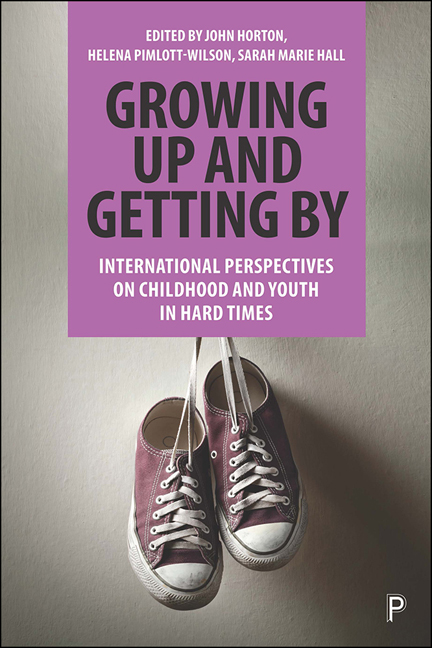1 - Introduction
Published online by Cambridge University Press: 18 December 2021
Summary
Introduction
We wish this book was not necessary
This collection gives voice to children, young people and families at the sharp end of contemporary processes of neoliberalisations, austerities and economic crises in diverse global contexts. We wish this book was not necessary or timely. However, as three geographers who have worked with many children, young people and families in different settings over the last 15 years, we are writing from a deep sense of sadness and urgency. This book has developed out of our anger and concern that the lives and prospects of so many of our research participants have demonstrably been adversely affected by manifestations of neoliberalisations, austerities and economic crises. The book is also written from heartbreak that our own communities, families and lifecourses have been profoundly affected by the same horrible processes. So as a point of departure, the following three vignettes from our research introduce some key terms, processes and deeply affecting encounters which echo throughout the following chapters.
John's research: just getting on with austerities, or ‘we’re fucked’?
During the global financial crisis of 2007–08, John was in the middle of several research projects based in spaces of play, youthwork and social care in the English Midlands. These spaces and communities were radically transformed by subsequent public sector funding cuts. Literally all of the youth organisations John worked with back then have now closed; literally all of the youthworkers and practitioners he worked with were made redundant. Within a few years entire, taken-for-granted categories of work/space (‘the public library’, ‘the statutory youth service’) were downsized, decommissioned and – apparently permanently – deemed unviable. John has written about some of these experiences (Horton, 2016; 2020) but, to be honest, finds it a bit too difficult. John holds on to the way many young people from these contexts demonstrated such tenacity, care and solidarity: ‘a kind of modest, resigned, sometimes-determined acceptance’ and capacity to ‘just get on’ with their lives and communities (Horton, 2017: 287). On the other hand, John can still hear a research participant talking about the probable closure of a particular service: they simply said ‘we’re fucked’ and walked away.
- Type
- Chapter
- Information
- Growing Up and Getting By , pp. 1 - 30Publisher: Bristol University PressPrint publication year: 2021

